Venezuelan politics are becoming progressively more chaotic: This month, a judicial order cancelled an opposition-led drive to hold a presidential recall referendum; scheduled gubernatorial elections were postponed; President Nicolás Maduro went on a frantic, globe-spanning diplomatic trip seeking support for his regime; and the Vatican sponsored a dialogue between the government and opposition that seemed to stall almost as soon as it was announced. The National Assembly, Venezuela’s legislature, is debating a political trial of President Maduro, but Venezuela’s Supreme Court has declared all actions of the legislature to be unconstitutional. Venezuela’s vice president, Aristobulo Isturiz, has baldly stated that the opposition-controlled National Assembly does not exist. A massive, nationwide opposition protest on October was met with repression across most of Venezuela, except for Caracas where international media is most watchful.
Amidst all this confusion, one thing is clear: Venezuela is no longer a democracy but rather an increasingly illiberal authoritarian regime, although some would argue that this has been true for some time. What is not yet clear is what comes next, nor is there much agreement in the international community or among outside observers on how best to help Venezuelans fix the hot mess that their politics have become.
Standing in dialogue’s way
For many outside observers, particularly neighboring governments, dialogue is still seen as the most desirable way to address Venezuela’s crisis. The Union of South American Nations (UNASUR) has sponsored a mediation effort by former presidents Martin Torrijos (Panama) and Leonel Fernández (Dominican Republic) and former Spanish Prime Minister José Luis Zapatero. Pope Francis has taken a much more prominent role in the dialogue process, going forward with the announcement of a new Vatican envoy, Archbishop Emil Paul Tscherrig, to Venezuela. The Vatican has the advantage of being one of the few external actors that both the government and the opposition respect. And even 12 countries in the hemisphere that are increasingly critical of Venezuela’s undemocratic path—including Argentina, Brazil, Colombia, and Mexico—call for dialogue as the best solution.
However, there are many obstacles to a dialogue’s success: The Maduro administration has not taken such opportunities seriously in the past, and many in the opposition consider government dialogue efforts a delaying tactic. Until now, the opposition has seen the UNASUR-sponsored mediation effort as being highly biased, earning Zapatero, in particular, widespread scorn from regime opponents. And Archbishop Tscherrig was placed in an embarrassing position when it became clear that a Vatican-sponsored dialogue had initially failed to garner support from all members of the opposition coalition.
It is also not clear that there is much that the government is willing to talk about. Walking back the recent decisions to suspend the recall referendum and gubernatorial elections would be a major loss of face for the government. Meeting other opposition demands, such as the release of political prisoners or recognizing the constitutional rights and prerogatives of the legislature, seem even less likely. Instead, the October 26 anti-regime protests were met by widespread repression (outside of the capital, Caracas) by police and the Guardia Nacional, working together with informal Chavista paramilitary organizations known as colectivos. Interestingly, the regime decided to augment its repressive firepower by relying on paramilitaries rather than on the regular army, which is most likely a consequence of latent fissures within the Venezuelan armed forces.
Fundamentally, President Maduro and his inner circle cannot risk negotiations that might lead to holding elections as originally scheduled, elections that they would almost certainly lose. Losing a recall referendum held this year would lead to new presidential elections, creating a risk that regime officials involved in corruption, drug trafficking, and human rights abuses might be held accountable. Holding gubernatorial elections is also highly risky for President Maduro: Currently, the majority of state governors in Venezuela are from his political party, and they are key to maintaining the regime’s power and executing its plans. Elections would almost certainly reverse this situation and transfer most state-level institutions into the hands of the opposition.
It is hard to see why the Maduro regime would take the risk of losing the impunity it currently enjoys by engaging in meaningful dialogue or allowing elections to proceed.
It is hard to see why the Maduro regime would take the risk of losing the impunity it currently enjoys by engaging in meaningful dialogue or allowing elections to proceed. They are well able to weigh the risk of allowing democratic institutions to function (likely leading them to lose power) against the cost of imposing an authoritarian regime (so far not very high for the regime, although increasingly deadly for the average Venezuelan).
Strategic civil resistance
This means that the opposition needs to increase the costs to the regime of continuing on its current authoritarian trajectory. We know from the work of Erica Chenoweth and Maria Stephan that civil resistance campaigns are more likely to succeed against authoritarian regimes than armed resistance campaigns. We also know that civil resistance campaigns are more likely to be effective when they attract mass support, when they lead to defections from within the ruling regime, and when they coordinate the use of flexible and varied tactics to increase pressure on the dictatorship. Gene Sharp, a scholar of non-violent resistance, catalogued 198 tactics that civil resistance campaigns use against governments—as Chenoweth and Stephan point out, the list has become longer with the emergence of new technologies such as social media.
The Venezuelan opposition, organized under the name Democratic Unity Roundtable (Mesa de Unidad Democrática or MUD in Spanish) has thus far not done consistently well in all methods that would be conducive to a successful civil resistance campaigns. As the September 1 and October 26 protests show, it is able to turn out massive numbers of protesters. However, there has not been a sustained campaign that would put pressure on the security services or lead members of the government to reconsider their support for Maduro. The MUD has not done well in attracting the support of defectors from the regime—doing so would mean finding a way of incorporating former Chavez supporters into their ranks, something that so far has not occurred. The MUD commands 54 percent support among Venezuelans, even though support for President Maduro has fallen to about 20 percent in most polls. This suggests there is a large pool of former Chavistas that could be won over. And the opposition needs to do better on coordinating tactics and expanding its range of techniques to pressure the regime. The MUD’s unity, which is frequently tested by disagreements over strategy and tactics, is under greater pressure than ever under the current circumstances, with the government actively attempting to divide its opponents.
The need for sustained pressure at all levels
What can outside observers do? There is a natural division of labor between what NGOs and international civil and political society can do, and what states can do.
One place civil and political society could start would be to step up efforts to support the opposition’s civil resistance efforts. This includes supporting opposition unity and providing advice, based on their own experience in resisting authoritarian regimes, encouraging them to develop a strategy for a sustained campaign (one that includes efforts to win over former government supporters, encourage defections, and adopt a wide range of tactics, flexibly applied). Such support was once critical during the third wave of democracy beginning in the 1970s, and it may prove helpful again in this case.
Ultimately, change in Venezuela will come from within.
On the other hand, states can continue to raise the costs, where possible, for the Maduro administration and its supporters in government and the security services for engaging in repressive behavior. This includes “naming and shaming,” targeted sanctions, legal prosecution, and asset seizures targeting people engaged in illegal and repressive behavior. As Michael McCarthy recently pointed out, one consequence of the political changes that have swept the hemisphere in the past year is that the diplomatic costs of state action to condemn Venezuela’s slide into authoritarianism have dropped.
The combination of a sustained opposition campaign with international support would change the cost-benefit equation for the Maduro regime of continuing its present course of action. Ultimately, change in Venezuela will come from within. This could happen quickly, and there is a sense that the pace of political events in Venezuela has picked up in recent weeks, but we should also keep in mind that civil resistance campaigns are often long and hard. Chenoweth and Stephan are careful to remind us of the eight years that passed from the founding of the Solidarity movement to the transition to democracy in Poland in 1989. Nevertheless, without altering the cost-benefit equation for the regime, dialogue in Venezuela is unlikely to produce meaningful results.
The Brookings Institution is committed to quality, independence, and impact.
We are supported by a diverse array of funders. In line with our values and policies, each Brookings publication represents the sole views of its author(s).


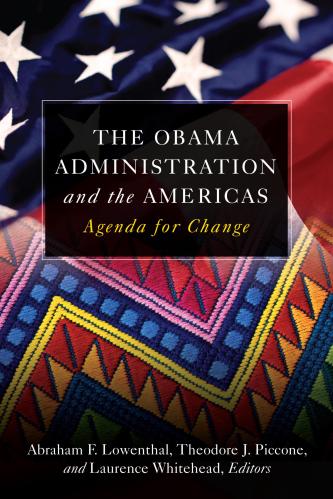
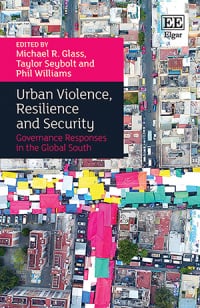
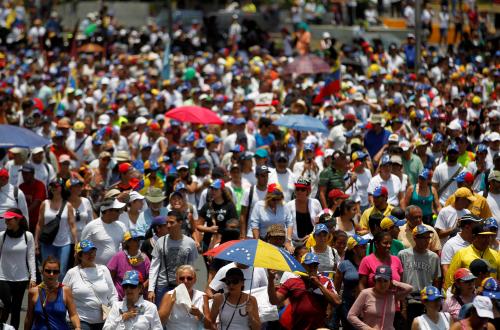
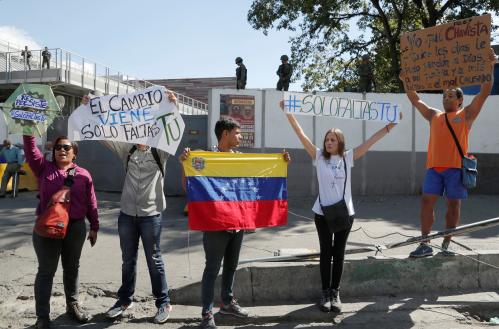
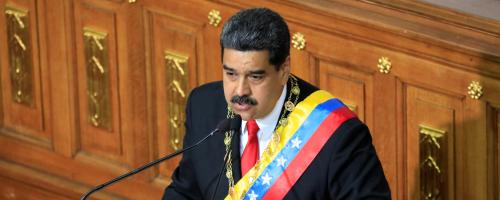

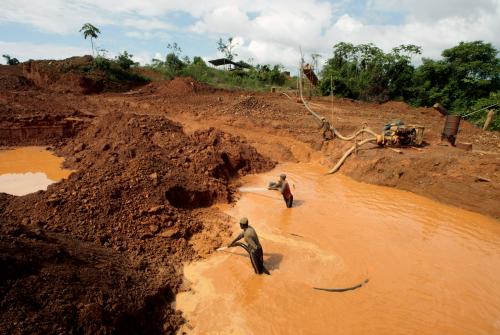
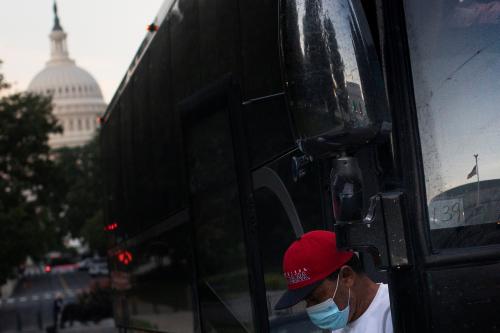
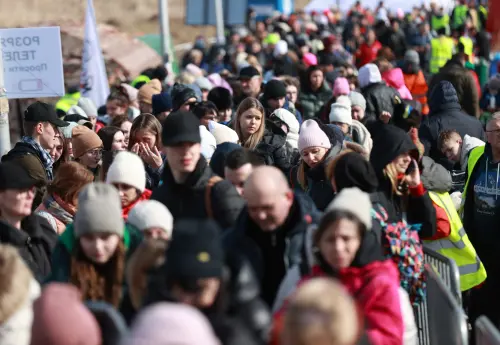
Commentary
In Venezuela, real dialogue remains unlikely. What can be done to change this?
October 28, 2016